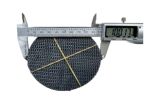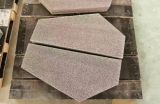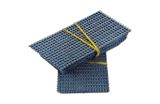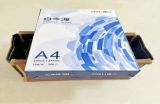May. 26, 2023
Selecting the right alumina ceramic foam filter (plate) is critical to achieving high-quality casting and ensuring efficient filtration of molten metal. The ideal filter depends on your metal type, casting process, and production requirements. Here are the key factors to consider:
Coarse Pores (10–20 PPI):
Suitable for high-flow applications such as large aluminum or magnesium ingots. Allows faster metal flow with moderate filtration efficiency.
Medium Pores (20–40 PPI):
The most commonly used type for general aluminum and aluminum alloy casting. Balances filtration efficiency and flow rate.
Fine Pores (40–60 PPI):
Ideal for precision casting or applications requiring high metal purity, such as aerospace or automotive components. Provides maximum inclusion removal.
Thin Plates (10–20 mm):
For low-volume or small castings, providing efficient filtration without excessive pressure drop.
Thick Plates (20–50 mm):
Suitable for large casting systems or high-temperature applications, offering more surface area for impurity capture.
Square or Rectangular Plates:
Commonly used for gravity casting systems and large pouring basins.
Custom Shapes:
Designed to fit specific casting molds or runners, ensuring optimal coverage and filtration efficiency.
High-Purity Alumina (≥ 95% Al₂O₃):
Provides excellent chemical stability, thermal shock resistance, and mechanical strength, suitable for most aluminum and alloy casting processes.
Ultra-High Purity Alumina (≥ 99% Al₂O₃):
Recommended for critical applications where minimal contamination is required, such as aerospace or electronics industries.
Metal Type: Ensure compatibility with aluminum, magnesium, or other non-ferrous alloys.
Casting Method: Gravity casting, low-pressure casting, high-pressure die casting, or continuous casting may require different pore sizes or thicknesses.
Flow Rate: Higher flow rates require coarser filters to prevent excessive pressure drop, while slower flows benefit from finer filtration.
We provide custom alumina ceramic foam plates tailored to your foundry’s specifications:
Dimensions and thickness
Pore density (PPI)
Shape and cut-outs for mold fit
Surface coatings for special alloy compatibility
Alumina ceramic foam filter(plate) is made with the organic foam sponge with three-dimensional network structure and connected pores is used as the carrier, which is infiltrated into the special ceramic slurry with thixotropy, and a special rolling process is adopted to make the ceramic slurry evenly spread on the skeleton of the carrier, and then finished by roasting at high temperature after drying curing.

All dimensions and ppi can be customized just according to your own samples or drawings.
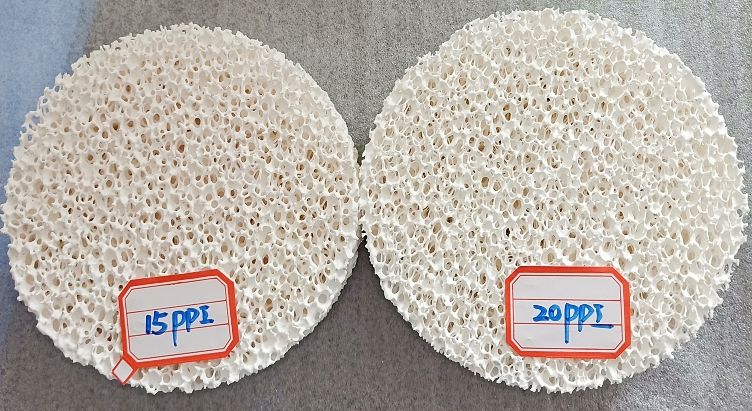
Ceramic foam filter is just developed as a new type molten metal filters to decrease casting flaw and also as a catalyst carrier for Air Treatment in recent years, play a vital role in the metal casting and air treatment, where they are used to filter out impurities in molten metal to improve the quality and performance of the end product or decompose organic pollutants into pollution-free water (H2O) and carbon dioxide (CO2) to meet high environmental requirements.
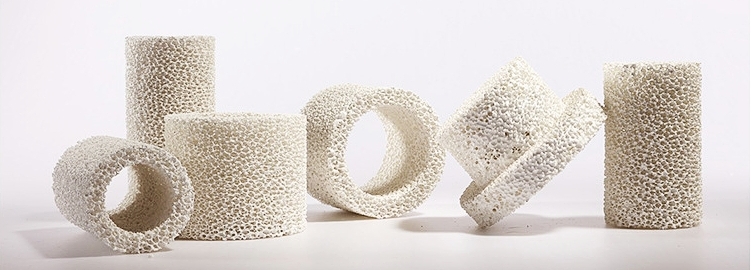
Choosing the right alumina ceramic foam filter plate ensures cleaner molten metal, improved casting quality, and reduced defects. By selecting the proper pore size, thickness, material purity, and shape, you can optimize your foundry operations and maximize efficiency.
Round Fiberglass Filter Mesh For Recycled Aluminium Melt
Jan. 28, 2026
Fiberglass Filter Mesh Are Exported To Our Abroad Client
Jan. 14, 2026
TF COMBO BAG to filter aluminum ingot and billet
Jan. 13, 2026
Contact Us
+86 158 3011 4065
Guoruiyuan Building, ShengLi North Street, Chang'An District, Shijiazhuang City, Hebei Province, China.
Navigation
Navigation

